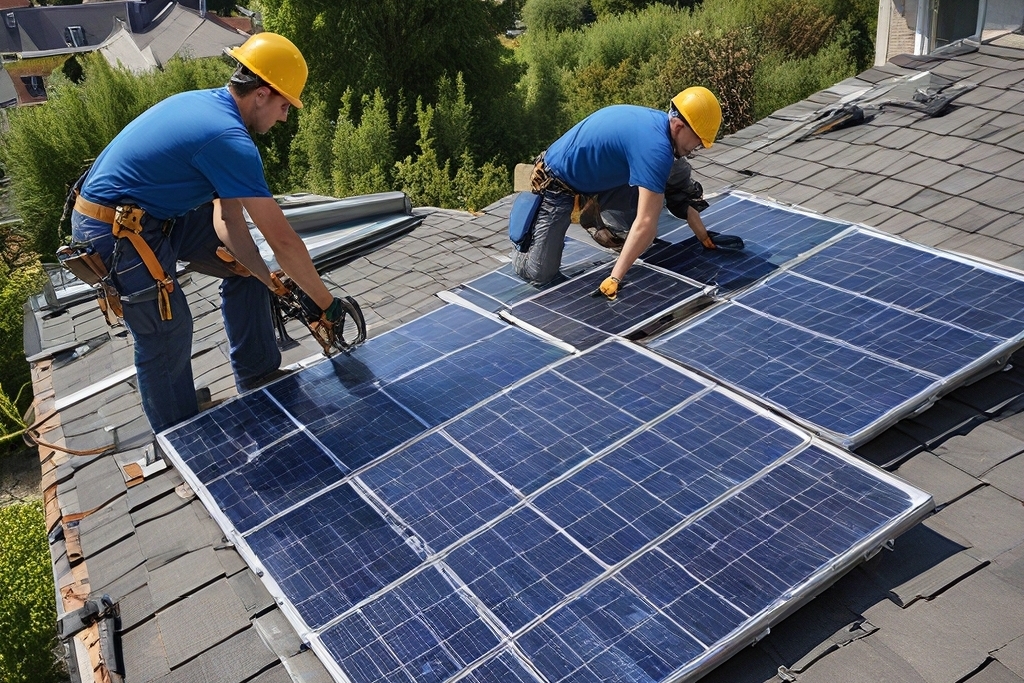Mexico's Solar Power Boom: Unlocking Renewable Energy Potential
Mexico's solar industry is experiencing rapid growth thanks to abundant sunlight, supportive policies, and technological advancements. Major projects like Villanueva and Don José Solar Park showcase the country's renewable ambitions. The sector offers environmental benefits, economic growth, job creation, and increased energy independence. Challenges such as regulatory hurdles and infrastructure needs remain. Future prospects include innovative solar tech, incentives, and expanding residential and industrial adoption. Mexico's renewable commitment positions it as a regional leader in sustainable energy, contributing to global climate goals with a promising outlook.
Sponsored

Amid global efforts to combat climate change and promote sustainable energy, Mexico is rapidly advancing in solar power development. With its sunny climate and strategic location, the country is becoming a key player in renewable energy. The solar industry in Mexico has experienced remarkable growth, driven by supportive policies, technological progress, and environmental awareness. This article explores the expansion, benefits, challenges, and future outlook of Mexico's solar sector.
Growth Trajectory of the Solar Sector in Mexico
Historical Context
Mexico’s push toward solar energy gained momentum in the early 2000s, transitioning from reliance on oil exports to embracing renewables, particularly after the 2013 Energy Reform Law, which opened the market to private companies.
The current landscape shows Mexico’s solar capacity surpassing 5,000 MW in 2022, a sharp rise from earlier levels. Factors such as government support, technological innovations, and rising eco-awareness have fueled this expansion.
Leading Companies and Solar Projects
Major firms like Enel Green Power, Iberdrola, and Grupo Dragón lead Mexico's solar market. Notable projects include the Villanueva Solar Plant, Latin America's largest with 828 MW, and Don José Solar Park with 238 MW, highlighting the country's ambitious renewable initiatives.
Advantages of Solar Energy in Mexico
Environmental Contributions
Solar energy offers a clean, renewable source that significantly cuts carbon emissions. Mexico’s adoption of solar supports its international climate commitments like the Paris Agreement and its own emission reduction targets.
Economic Growth and Job Creation
The solar industry has generated thousands of jobs in installation, maintenance, research, and development. Investment in solar projects boosts the economy, attracts foreign investors, and reduces dependency on imported fuels.
Energy Independence and Resilience
Developing solar resources enhances Mexico’s energy autonomy, diversifies its energy mix, and buffers against volatile global oil prices, leading to a more stable energy infrastructure.
Electrification in Rural Areas
Off-grid solar solutions provide electricity to remote rural communities, improving living standards and supporting social development in underserved regions.
Industry Challenges in Mexico
Regulatory and Policy Barriers
While progress has been made, policy shifts and lengthy approval processes pose risks for investment stability and growth.
Grid Infrastructure and Integration
Integrating large solar farms into the national grid demands infrastructure upgrades, such as transmission lines and grid management, to ensure efficient power distribution.
Funding and Investment Hurdles
Although financing options are expanding, securing funds for large-scale projects remains challenging due to the high capital requirements and the need for innovative financial models.
Public Awareness and Education
Raising awareness about the benefits and feasibility of solar power is essential. Public education can dispel misconceptions and foster wider acceptance of solar solutions.
Future Directions and Opportunities
Technological Innovations
Advances such as high-efficiency solar panels, energy storage, bifacial modules, and emerging materials like perovskite cells promise lower costs and better performance, propelling industry growth.
Policy Support and Collaborations
Continued government incentives, including tax benefits and subsidies, along with international partnerships, will facilitate technology transfer, capacity building, and sector expansion.
Market Expansion for Homes and Businesses
Encouraging rooftop and commercial solar installations through incentives and financing can unlock extensive untapped potential and accelerate adoption.
Sustainability Goals and Global Climate Efforts
Mexico’s dedication to environmental sustainability and climate targets will spur more investments. International support and collaborations will further enhance sector development.
Conclusion
The growth of Mexico’s solar panel industry is set to continue, driven by favorable conditions, policy support, and environmental concerns. Despite existing challenges, the sector offers environmental, economic, and social benefits, positioning Mexico as a renewable energy leader. Ongoing investments, technological progress, and public engagement will illuminate a sustainable path forward, making Mexico a key player in global clean energy initiatives.
This transition aligns with international trends and exemplifies Mexico’s commitment to a greener, more resilient energy future, contributing significantly to global climate change mitigation efforts.






